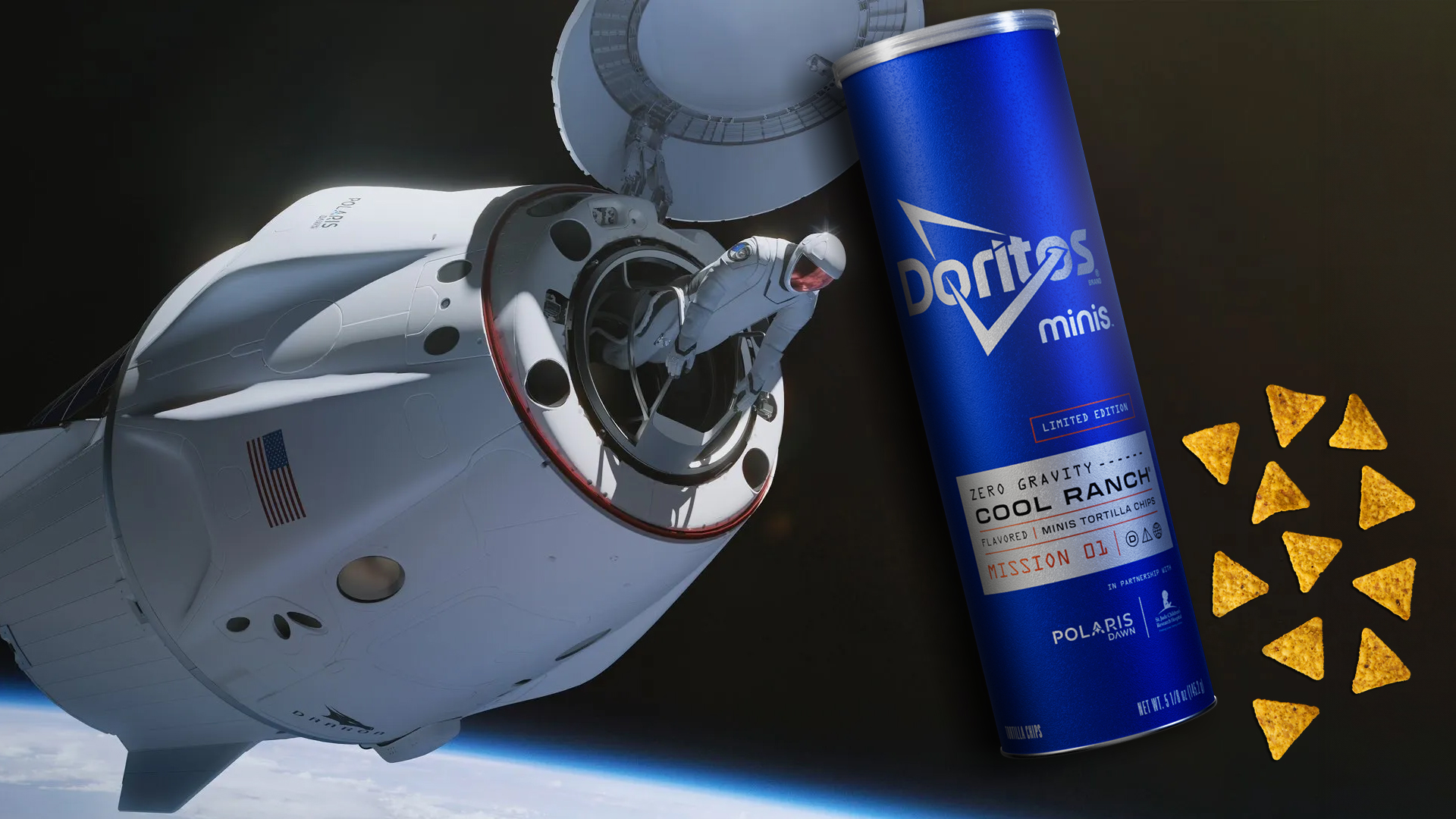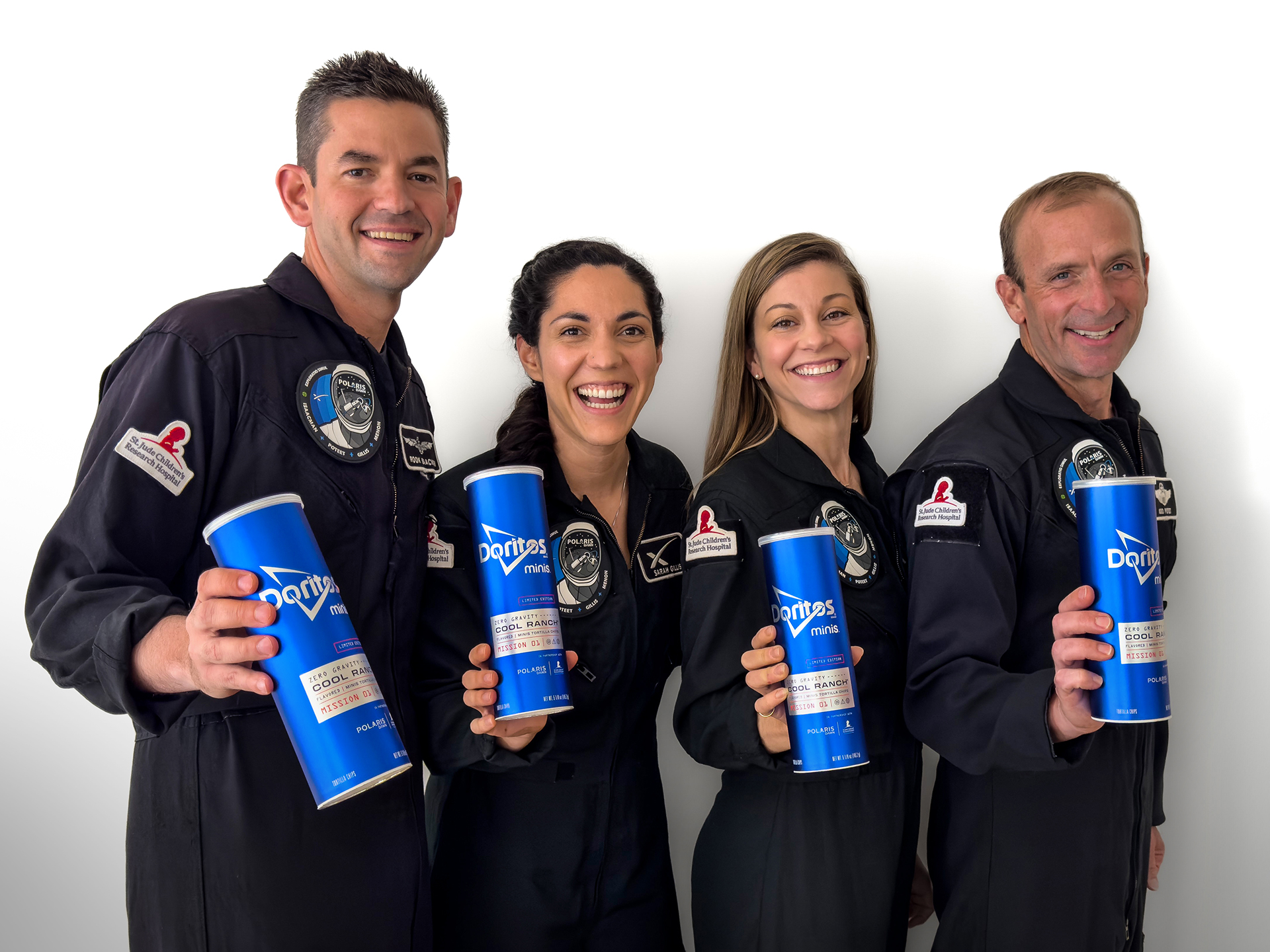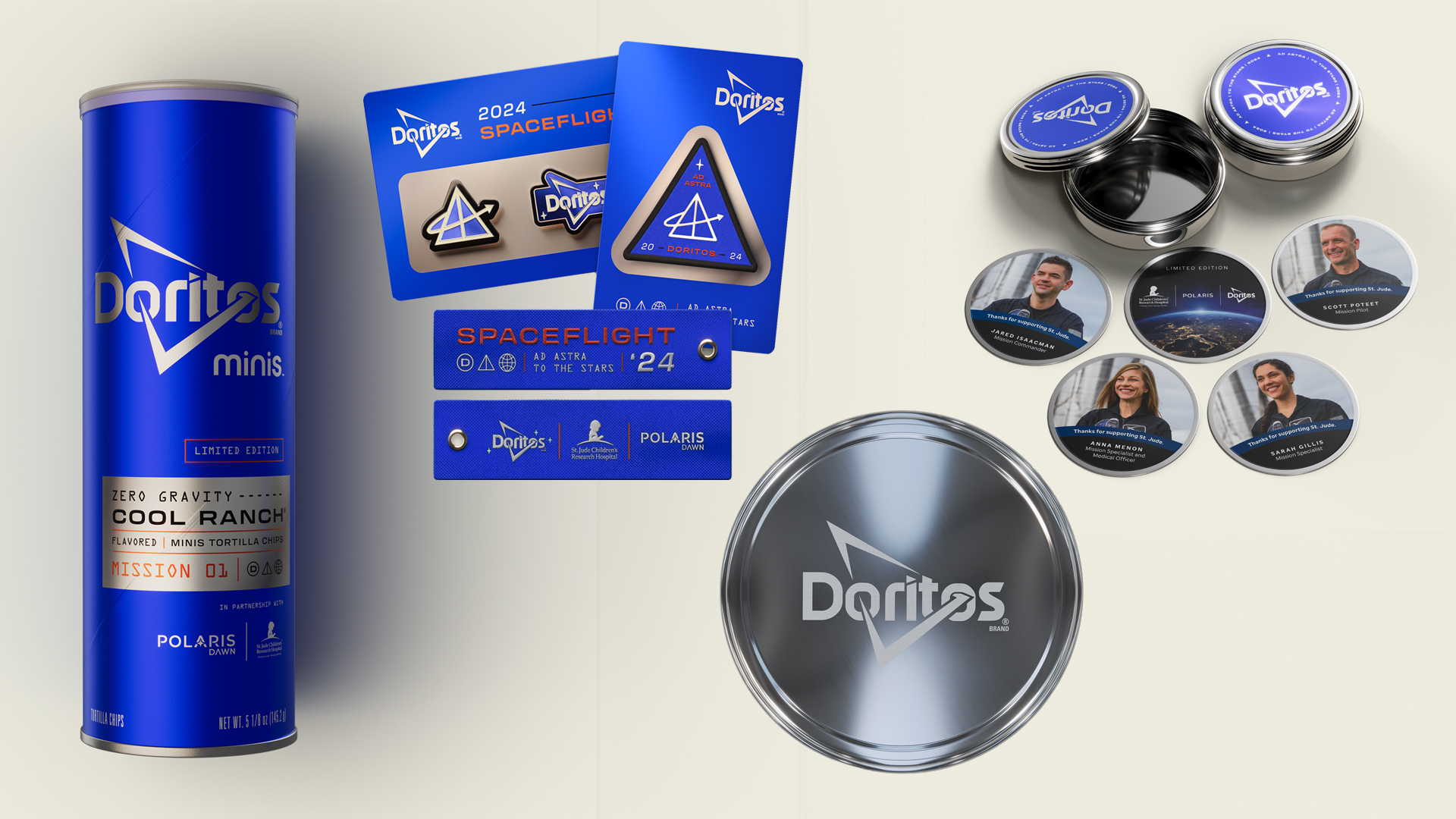Doritos new safe-for-outer-space chips set for blast off: Here's how to get your own
Doritos will launch to space for the first time on the private Polaris Dawn mission.

Doritos is launching a new limited-edition flavor with an out-of-this-world mission to make space history while supporting an important cause.
For nearly 60 years, the flavored corn chips has been enjoyed on Earth, but have been banned from outer space given the threat that Doritos "dust" and crumbs pose to spacecraft systems. Now, the food scientists at FritoLay (PepsiCo) have figured out how to make Doritos safe for microgravity and are ready to blast off.
Cool Ranch Zero Gravity Doritos swaps out the chips' classic powdered topping for an oil-based coating that keeps the flavor from floating away. Further, they are "Minis," a bite-size version of the full-size chips, which reduces the chance of any bits and pieces escaping.
NASA and other space agencies have employed similar techniques to make foods safe for spaceflight, though not with a snack chip. Before adopting flour tortillas as a substitute for bread, for example, NASA nutritionists prepared bite-size bread cubes for early astronauts to consume. Even today, the crews on the International Space Station use pepper oil and salt water, rather than their dry counterparts, to add flavor to their meals.
"The limitless possibilities of space inspired us to push the boundaries of what's possible," said Chris Bellinger, chief creative officer of PepsiCo Foods North America, in a statement. "This mission is a testament to our commitment to delivering bold experiences and flavors, even in the most unexpected places."

Packaged in tins that were also approved for flight, Cool Ranch Zero Gravity Doritos are ready for lift off on Polaris Dawn, a commercial mission on a SpaceX Dragon spacecraft that will see four private astronauts become the first people to eat Doritos in space (as well reach an altitude above Earth not achieved by a human spaceflight in more than 50 years and perform the first ever commercial spacewalk).
The Polaris Dawn mission, led by billionaire entrepreneur Jared Isaacman, is scheduled to launch no earlier than Monday, Aug. 26, atop a SpaceX Falcon 9 rocket from NASA's Kennedy Space Center in Florida. Scott "Kidd" Poteet will serve as pilot, while SpaceX engineers Sarah Gillis and Anna Menon will fly as mission specialists.
The crew has partnered with Doritos to not just provide them with snacks, but help get the public involved in supporting St. Jude Children's Research Hospital, the mission's chosen benefactor. Doritos fans on the ground can donate to St. Jude's to get their own Cool Ranch Zero Gravity chips in a glow-in-the-dark canister.
Doritos is also making a $500,000 donation to advance St. Jude's efforts to raise awareness and fund childhood cancer research and treatment.
"We are deeply grateful to Doritos for its generous support that inspires communities and consumers everywhere to unite for a bold cause: helping treat and defeat childhood cancer," said Richard Shadyac, president and chief executive of ALSAC, the fundraising and awareness organization for St. Jude Children's Research Hospital. "Through this partnership, Doritos and the Polaris Dawn crew are being catalysts for change by helping St. Jude raise survival rates for more of the 400,000 kids around the world with cancer every year."

In addition to receiving the limited edition chips canisters, fans can also donate to win mission-inspired memorabilia. Among the prizes are patches and pins, apparel, signed and space-flown Doritos tins and tickets to either the MTV Video Music Awards or a post-mission Polaris Dawn celebration.
According to Doritos, the goal is raise $85,000 from chips and swag pledges.
"With every new Doritos innovation, we hope to encourage snackers to pave new paths," said Tina Mahal, senior vice president of marketing at PepsiCo Foods North America. "The Cool Ranch Zero Gravity chips embrace what it means to live life boldly by pioneering a creative way to raise awareness for such an important cause."
Follow collectSPACE.com on Facebook and on Twitter at @collectSPACE. Copyright 2024 collectSPACE.com. All rights reserved.
Breaking space news, the latest updates on rocket launches, skywatching events and more!
Join our Space Forums to keep talking space on the latest missions, night sky and more! And if you have a news tip, correction or comment, let us know at: community@space.com.

Robert Pearlman is a space historian, journalist and the founder and editor of collectSPACE.com, a daily news publication and community devoted to space history with a particular focus on how and where space exploration intersects with pop culture. Pearlman is also a contributing writer for Space.com and co-author of "Space Stations: The Art, Science, and Reality of Working in Space” published by Smithsonian Books in 2018.In 2009, he was inducted into the U.S. Space Camp Hall of Fame in Huntsville, Alabama. In 2021, he was honored by the American Astronautical Society with the Ordway Award for Sustained Excellence in Spaceflight History. In 2023, the National Space Club Florida Committee recognized Pearlman with the Kolcum News and Communications Award for excellence in telling the space story along the Space Coast and throughout the world.

